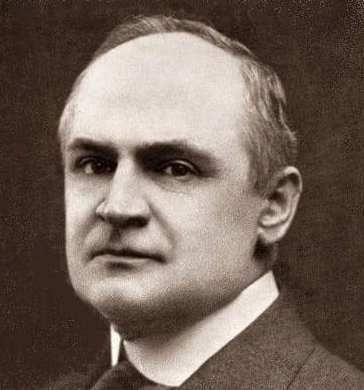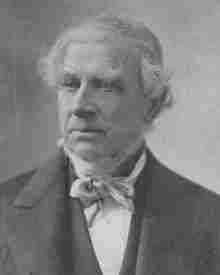SelfDefinition.Org
Practical Memory Training
'Theron Q. Dumont'William Walker Atkinson
(1916)

Lesson 31 Memory of Events
One of the most valuable phases of memory-training, to the average man, is that which is concerned with the memory of events, happenings, occurrences, facts and incidents of daily experience, etc. Experience is a most valuable thing to any man—frequently it is purchased at a very high price—and one does not like to lose the memory of it. Again, the perception and memory of things of interest to one in his occupation—of "news interest" to him, in fact—is a valuable activity of his mind. The cultivation and development of this faculty, and memory, is well worth while. The faculty in question is that one of the perceptive group known as the Faculty of Eventuality.
It will naturally occur to the student that the first step in the development of this faculty should be that of the development of the general power of perception—the main spring of the entire perceptive mechanism of the mind. This is correct for the work must begin right there Again, the faculty of analysis, comparison, and classification must be employed in developing the very important phase of perception and memory. In fact, in order to attain proficiency in the perception and memory of events, it is necessary to develop, train, and strengthen—to increase the general proficiency of—the entire mental mechanism concerned with observation, by means of the general principles, rules and methods which I have given you in the course of these lessons.
This, because, events are composite—composed of all forms of perceptible and perceived contents. Events are composed of the coming, and happening, of things—and things are composed of properties, qualities, and attributes—so that in order to clearly perceive and remember events, we must be able to perceive the qualities, properties, and attributes of things, as well as their actions and activities. The student who has put into practice the general principles and methods laid down in these lessons, will have already developed his powers of observation, and will be well advanced on the road toward the efficient perception and memory of events. But, nevertheless, a few additional suggestions may be given in this lesson, which will serve to bring out the general teaching more clearly.
Importance of review. In my personal instruction, I have, at times, found pupils who seemed to progress very rapidly in other forms of memorizing and memory culture—particularly in the phase of memorizing by the Cumulative Method—but who seemed to have "struck a snag" in the particular phase of memory which we are now considering, namely, the memory of events. In the early years of my teaching, these cases caused me much trouble, concern, and an extraordinary expenditure of time and energy, for I had not as yet discovered the particular weak point in such cases. I always cured the trouble, but it was like firing a shot gun at it, whereas a single well-directed bullet would have done the work. I was like a doctor, puzzled in his diagnosis, who cured the patient only after prescribing his entire list of remedies, in a grand combination, so that he never knew what really had worked the cure. Finally, however, I managed to work out the solution, and here it is, simple enough to be sure, but easily overlooked. I found that the weak-point in the mechanism of this form of memory was simply the lack of review.
These puzzling students were excellent in perceptive power, and up to the mark in analysis, comparison, and classification—the associative links were strong, and there seemed no reason why they did not make progress in this branch as in the other phases of memory. As I have said, I finally worked out the answer to the problem. I found that while, in the other phases of memory, there was the natural and logical necessity of constant review for the purpose of addition, under the cumulative system, or the rule of strengthening impressions by reviewing them in consciousness, nevertheless, in this particular case there had been no apparent necessity for review, and, consequently no review work was given or performed. Ah, ha! said I—here is the weak spot in the machinery. No sooner perceived than the remedy was applied.
Here is the remedy I prescribed—and it worked perfectly. I bade the pupil to sit down quietly every night, and then and there to review the events of the day just finished. The various persons he had met; the conversations that had been had; the details of work that had been performed; in short, as many things, facts, and events of the day, as possible, were reviewed in retrospective memory. At first, the pupil could remember very little, comparatively, of the day's doings, but, in a short time a great improvement was noted. This very naturally, because the practice and exercise not only strengthened the memory along these lines, but also sharpened and stimulated the particular perceptive faculties involved, as well as the other mental powers called into operation in the work.
I then added to the prescription, by bidding the pupil not only to practice his nightly review of the day, but also at the week-end to review the events of the preceding week, in regular sequence—a grand review as it were. Then developed the monthly review; and finally the general "look backward" at the end of the year. Of course, the weekly review was less detailed than the daily; the monthly less than the weekly; and the yearly still less detailed, as only general events and occurrences were called into mental vision.
The results of this improved system were remarkable, not only as to the marked and often marvelous improvement in the faculty and memory, but also as regards the rapid rate of progress. But my joy at the discovery and its result, was tempered by my chagrin at my failure to discover this particular point of practice much sooner. It was so obvious that I had overlooked it!

Thurlow Weed 1797-1882
In view of the above facts, you may imagine my feelings when, several years ago, an American friend attending my school as a visitor, and listening to my emphasis upon this particular point, in one of my class lectures, afterward said to me: "Professor, that point reminded me of something that Thurlow Weed [1] says in his 'Memoirs'—surely you have both drunk at the same fount!" I had never even heard of Thurlow Weed, the American statesman, at that time, but I hunted up his book shortly afterward, and therein found the following statement—note the wonderful coincidence.
[1. en.wikipedia.org/
Mr. Weed said: "Some of my friends used to think that I was cut out for a politician, but I saw at once a fatal weakness. My memory was a sieve. I could remember nothing. Dates, names, appointments, faces—everything escaped me. I said to my wife, 'Catherine, I shall never make a successful politician, for I cannot remember, and that is a prime necessity of politicians. A politician who sees a man once should remember him forever.' My wife told me that I must train my memory. So when I came home that night I sat down alone and spent fifteen minutes trying silently to recall with accuracy the principal events of the day. I could remember but little at first—now I remember that I could not then recall what I had for breakfast. After a few days' practice, I found that I could recall more. Events came back to me more minutely, more accurately, and more vividly than at first. After a fortnight or so of this, Catherine said: 'Why don't you relate to me the events of the day, instead of recalling them to yourself? It would be interesting, and my interest in it would be a stimulus to you.' Having great respect for my wife's opinion, I began a habit of oral confession, as it were, which was continued for about fifty years. Every night, the last thing before retiring, I told her everything I could remember that had happened to me, or about me, during the day. I generally recalled the very dishes I had for breakfast, dinner and tea; the people I had seen; and what they had said; the editorials I had written for my paper, giving her a brief abstract of them; I mentioned all the letters I had seen or received, and the very language used, as nearly as possible; when I had walked or ridden—I told her everything that had come within my observation. I found that I could say my lessons better and better every year, and, instead of the practice growing irksome, it became a pleasure to go over again the events of the day. I am indebted to this discipline for a memory of unusual tenacity, and I recommend the practice to all who wish to store up facts, or expect to have much to do with influencing men."
The student who has followed me in this series of lessons, will readily recognize the psychological principles employed by Mr. Weed in his system of self-training, though, in all probability, he was unaware of the real principles involved. There is one point, however, to which I should call your attention, and that is that the subconscious mind seems to realize that it will be called upon each day to reproduce that which has been impressed upon it. Accordingly, it arranges its tension so that it will operate in more of a "hair trigger" manner. Moreover, it becomes very much more receptive to the impression of events, and seems to be anxious to store away as many details as possible, as clearly as possible. In short, it responds to the increased call made upon it, and increases its efficiency!
To some psychologists, review work has seemed like a kind of mental rumination, or "chewing the cud" of the perceptions previously received. I agree with this idea, and, moreover, I believe that in such work the subconscious mind really "digests" its impressions, and assimilates them much better than in the ordinary condition of things.
Without carrying the idea to its full application, many will find it a valuable plan to review in memory the events of some important conversation, action, or business transaction—going over it in detail, and thus impressing it with greatly increased strength and clearness upon the memory. Few persons do this, but those who know its value, and practice it, have a great advantage over those who do not. Many of the world's greatest men of affairs follow some such general rule about their important transactions, etc. It is a favorite plan among diplomats, and financiers. Take a leaf from their books!